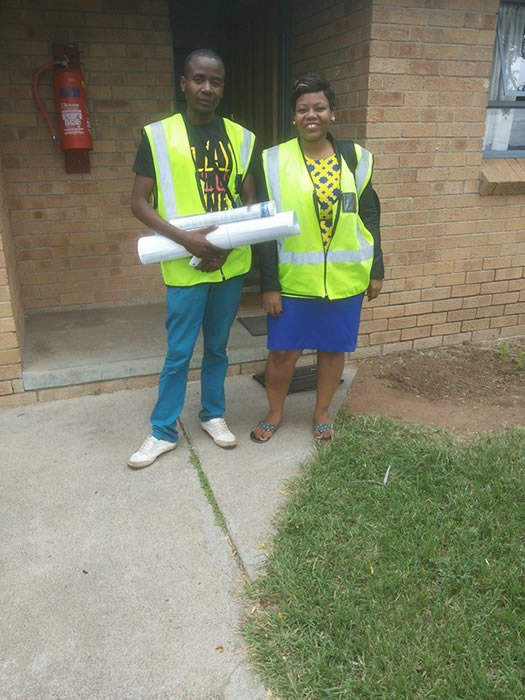ESAFF landmark project to link farmers with meteorological services

22/5/2014
ESAFF has embarked on a project to ensure farmers access scientific updates about weather so as to improve their decision making power for farming needs.
The holistic project seeks to link small scale farmers in member countries with Meteorological Centers in their countries to enable them benefit from the services offered.
Weather patterns are critical for farmers in Africa who largely depend on rain fed agriculture.
The initiative is part of the ESAFF’s plans to increase small scale farmers’ access to much needed professional and technical services for the advancement of their farming activities.
So far ESAFF has visited Zimbabwe, Lesotho and South Africa to look at how the information generated by meteorological agencies can benefit farmers.
After the visits, ESAFF is looking for ways of future collaboration to see how the information from the agencies could be customized to reach and benefit small scale farmers.
ESAFF delegation on 24th March 2014 visited the Zimbabwe Meteorological Center in Harare. The delegation was told by Mr. Swaze who heads the Marketing department, that the center shares some information to the general public for free and other information is for sale.
The information offered for free is produced on daily basis and too general in nature, touching on all aspects of weather. The second category of information for sale includes more specific information on different weather patterns.
The center routinely produces Agro-Met Bulletin and Rainfall Bulletin for sale. Agro-Met bulletin forecasts weather for the every 10 days with highly customized information for agriculture uses. The Rainfall Bulletin is more specific on rain patterns in all parts of the country.
In South Africa and Lesotho, similar courtesy visits were made and it was realized there is a lot of information that can benefit farmers if it reaches them on time.
Challenges
The process also identifies some challenges that have been hindering farmers’ access and use of the meteorological information for their farming activities. These include limited knowledge on their part about the existence of meteorological center at national and local levels and limited knowledge of the existence of such services suitable for small scale farmers. Other challenges identified include access to such information in the rural areas (where the majority small scale farmers are) and in the case of Zimbabwe, the ability of farmers to afford such a high cost for accessing the more customized information – which is more relevant to their farming activities than the general one.
Farmers’ reactions
Farmers were happy to find such services existed and could be can customized for their use. Farmers expressed gratitude to ESAFF for the linkup. In Zimabbwe, Mr. Ngoni Chikowe, a farmer from Mutoko District, north of the country noted, “I have been farming for a long time and I have traveled to Harare and other Town centers but I never knew these centers provided such useful information!”
All centers agreed to keep their doors open for future visits and consultation by small scale farmers.
End






















